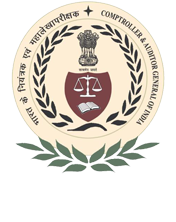Audit Reports

Indirect Tax
Report No. 30 of 2010 - Performance Audit of Cenvat credit Scheme Union Government (Indirect Taxes - Central Excise & Service Tax)
Overview
With a view to avoid cascading effect of excise duties, Modvat Credit Scheme was introduced in 1986. This was replaced by the Cenvat Credit Scheme from 1 April 2000. The present Cenvat Credit Scheme, which is operative from 10 September 2004 under the Cenvat Credit Rules, 2004, covers central excise duties as well as service tax. We conducted a performance audit to evaluate the adequacy of provisions of the Central Excise Act, 1944, Finance Act,1994, Central Excise Rules, Service Tax Rules and related instructions and the degree of non-compliance in adhering to the scheme.We identified certain shortcomings in the rules and regulations which had a revenue implication in the range of Rs.190.61 crore. We found incorrectly accumulated cenvat credit of Rs.2143.18 crore and incorrectly utilised credit of Rs.257.31 crore. The department had accepted (till December 2010) audit observations involving revenue of Rs.163.01 crore and reported recovery of Rs.33.77 crore. We have made eight recommendations to address deficiencies in rules and provisions.
We found that there were no penal provisions for non-submission of ER 5 and ER 6 returns and recommended that this could be introduced.We recommended that the Government should introduce appropriate provisions in the Cenvat Credit Rules for reversal of Cenvat credit on input services used for output services that are written off.We recommended that suitable provisions may be included in the Service Tax Rules to ensure proper accounting and reversal of credit taken on common inputs used for manufacture of both dutiable and non-excisable goods.
We found that the Rules provided for recovery/reversal of credit on goods whose value was fully written off and manufacturers were retaining the entire credit by keeping a very small value in the books. We recommended that the Government should consider changing the stipulation of fully writing off to a proportionate reversal of credit in case of partial writing off.We found instances where assessees availed cenvat credit of Rs.530.15 crore on inputs, input services and capital goods that had been specifically disallowed in the rules or through notifications.We found instances where cenvat credit of Rs.1356.30 crore was not reversed as required by the rules and led to accumulation of credit with the assessees.We found instances of non-compliance to prescribed procedures and record keeping, such as availing of credit on improper documents, which had a total revenue implication of Rs.256.73 crore.We found instances where assessees utilised cenvat credit in contravention of rules like transfer of unutilised credit, payment of tax on input service,etc. which resulted in revenue loss of Rs.257.31 crore.
Download Audit Report
-
Report No. 30 of 2010 - Full Report
 (7.90 MB)
Download
(7.90 MB)
Download
-
Preface
 (0.04 MB)
Download
(0.04 MB)
Download
-
Executive Summary
 (0.32 MB)
Download
(0.32 MB)
Download
-
Chapter 1 – Introduction
 (0.39 MB)
Download
(0.39 MB)
Download
-
Chapter 2 - Accumulation of cenvat credit
 (6.28 MB)
Download
(6.28 MB)
Download
-
Chapter 3 – Utilisation of cenvat credit
 (1.05 MB)
Download
(1.05 MB)
Download
-
Glossary
 (0.18 MB)
Download
(0.18 MB)
Download

